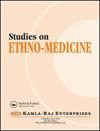学童快餐消费与注意广度和记忆保持的关系
Q2 Social Sciences
引用次数: 1
摘要
为了研究快餐消费与注意广度和记忆保持的关系,选取卢迪亚纳市3所私立学校和3所公立学校的240名13-15岁经常食用快餐的学龄儿童。收集了受访者的一般资料和人口统计资料以及快餐消费频率的数据。受试者被要求填写包含这些细节的问卷。对被试进行D2注意广度测试和记忆保持测试,评估被试的认知发展情况。结果显示,在校儿童经常食用快餐,与私立学校的儿童相比,公立学校的儿童食用快餐的比例略高。私立学校和公立学校的学生经常吃的快餐是薯片、饼干、面包、饼干、golgappe(土豆馅油炸咸零食)和samosa(土豆馅油炸咸零食)。快餐消费与注意力持续时间和记忆保持呈显著负相关;而注意力持续时间与记忆保持之间存在显著的正相关。因此,私立学校儿童的注意广度和记忆保持得分高于公办学校儿童(p<0.05)。本文章由计算机程序翻译,如有差异,请以英文原文为准。
Fast Food Consumption and Its Relation with Attention Span and Memory Retention in School Children
To study the relationship of fast food consumption with attention span and memory retention, a total of 240 school children aged 13-15 years with frequent consumption of fast food were selected from three private and three government schools of Ludhiana city. The data on general information and demographic profile of the respondents and frequency of fast food consumption was collected. The subjects were asked to fill the questionnaire containing these details. D2 attention span test and memory retention test were conducted among the selected subjects in order to assess their cognitive development. The results revealed that there was frequent consumption of fast food among the school children, wherein comparison to the private school children, consumption of fast foods by government school children was slightly higher. Frequently consumed fast foods among both private and government school children were chips, biscuits, bread, cookies, golgappe (potato filled fried salty snack) and samosa (potato stuffed fried salty snack). A significant negative correlation was observed between the consumption of fast food and attention span and memory retention; while a significant positive correlation was observed between attention span and memory retention. Hence, it was concluded that private school children were having better attention span (p<0.05) and memory retention scores than government school children.
求助全文
通过发布文献求助,成功后即可免费获取论文全文。
去求助
来源期刊

Studies on Ethno-Medicine
Social Sciences-Cultural Studies
CiteScore
0.50
自引率
0.00%
发文量
13
期刊介绍:
Studies on Ethno-Medicine is a peer reviewed, internationally circulated journal. It publishes reports of original research, theoretical articles, timely reviews, brief communications, book reviews and other publications in the interdisciplinary field of ethno-medicine. The journal serves as a forum for physical, social and life scientists as well as for health professionals. The transdisciplinary areas covered by this journal include, but are not limited to, Physical Sciences, Anthropology, Sociology, Geography, Life Sciences, Environmental Sciences, Botany, Agriculture, Home Science, Zoology, Genetics, Biology, Medical Sciences, Public Health, Demography and Epidemiology. The journal publishes basic, applied and methodologically oriented research from all such areas. The journal is committed to prompt review, and priority publication is given to manuscripts with novel or timely findings, and to manuscript of unusual interest. Further, the manuscripts are categorised under three types, namely - Regular articles, Short Communications and Reviews. The researchers are invited to submit original papers in English (papers published elsewhere or under consideration elsewhere shall not be considered).
 求助内容:
求助内容: 应助结果提醒方式:
应助结果提醒方式:


